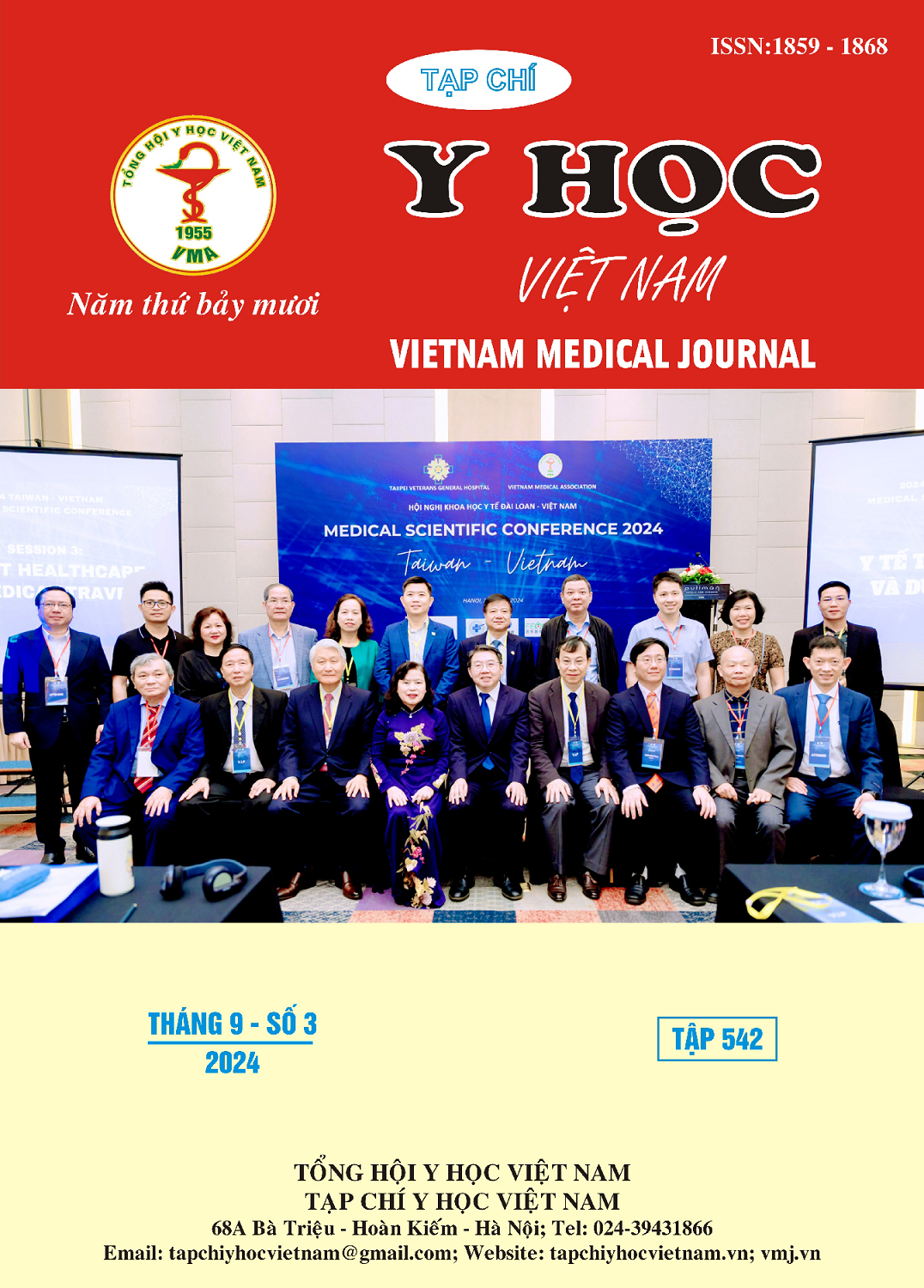EXPERIENCES AND ACCEPTANCE OF ENDOSCOPISTS REGARDING THE IMPLEMENTATION OF AN AI ALGORITHM-INTEGRATED SYSTEM IN GASTROINTESTINAL ENDOSCOPY IN VIETNAM
Main Article Content
Abstract
The application of Artificial Intelligence (AI) in endoscopy has recently been implemented in Vietnam. This study aimed to describe the experience and assess the acceptance of endoscopists regarding the employment of AI-integrated systems in gastrointestinal endoscopy. An online survey using Google Forms was conducted on endoscopists in Vietnam from December 2023 to May 2024. Among the 59 participating endoscopists, 57,6% had experience with AI-integrated systems in endoscopy and have participated in related studies. Accurate lesion detection was identified as a significant advantage of AI-integrated endoscopy systems, accounting for 72,9%. A notable drawback was the high false positive rate causing continuous interference during the examination, representing 57,6%. Lesion detection was considered the most prioritized feature in AI algorithm development. 59,3% of the endoscopists showed high acceptance levels towards AI support in endoscopy. Endoscopists’ acceptance levels of AI systems in endoscopy did not differ significantly between different experience levels or familiarity with AI systems and projects. This study contributes evidence on the acceptance levels of endoscopists toward AI, helping to identify strengths, weaknesses and priority areas for developing AI-integrated system in gastrointestinal endoscopy.
Article Details
Keywords
AI, Artificial Intelligence, endoscopy, experience, acceptance
References
2. Arif, A.A., S.X. Jiang, and M.F. Byrne, Artificial intelligence in endoscopy: Overview, applications, and future directions. Saudi J Gastroenterol, 2023. 29(5): p. 269-277.
3. Kader, R., et al., Survey on the perceptions of UK gastroenterologists and endoscopists to artificial intelligence. Frontline Gastroenterol, 2022. 13(5): p. 423-429.
4. Lee, J., et al., Survey on the perceptions of Asian endoscopists to artificial intelligence. 2024.
5. Tian, L., et al., Endoscopists' acceptance on the implementation of artificial intelligence in gastrointestinal endoscopy: development and case analysis of a scale. Frontiers in Medicine, 2022. 9: p. 760634.
6. Leenhardt, R., et al., PEACE: Perception and Expectations toward Artificial Intelligence in Capsule Endoscopy. J Clin Med, 2021. 10(23).
7. Ahmed, Z., et al., Knowledge, attitude, and practice of artificial intelligence among doctors and medical students in Pakistan: A cross-sectional online survey. Ann Med Surg (Lond), 2022. 76: p. 103493.
8. Wadhwa, V., et al., Physician sentiment toward artificial intelligence (AI) in colonoscopic practice: a survey of US gastroenterologists. Endosc Int Open, 2020. 8(10): p. E1379-e1384.


